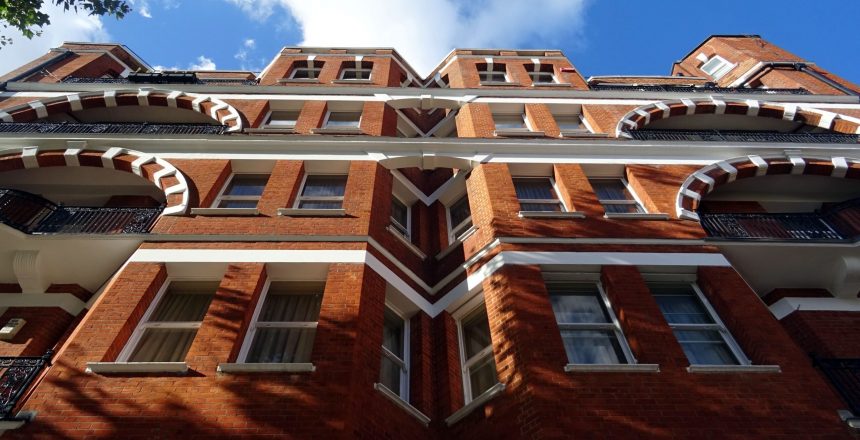Whether you’ve recently inherited a freehold, or you’ve been a freeholder for decades, you have decided to sell it.
Working with a specialist freehold company means that actually securing a sale is easy (if you’re unsure, check our blog ‘Can I sell my freehold?’), but how long does the process take? You don’t want it to be a long, drawn-out affair – after all, the reason you’re probably selling it is that you don’t want the hassle anymore.
“Being a freeholder comes with responsibilities, which may include insuring the building and taking care of maintenance”, explains Freehold Sale’s Adam Lowe. “In many cases, a freeholder has become one by inheriting the freehold title, perhaps from a late relative or somebody’s will. It’s not always a responsibility they want to have.”
The first step to selling is to get an offer, either from the leaseholder or another buyer, but the speed of the sale depends on which route you go down.
Offering it to the leaseholders
The leaseholders have the Right of First Refusal (RFR). This means that any freeholder holding the freehold interest has to provide the leaseholders with an official notice of intent to sell, giving them a set period to accept the offer extended to them – typically two months. If they don’t accept the offer within the specified time frame, the freeholder is able to sell or go to market.
“It’s a little different if the freeholder wants to sell at auction. The leaseholder is given longer – usually 4 months’ notice period.
If the offer isn’t accepted by the time the notice period expires, you can sell your freehold in the next available auction.
Contacting a specialist freehold buyer
“When Freehold Sale is contacted about a property, we guarantee an offer within 24 hours,” Adam says. “In that time we’re asking the freeholder a number of standard questions, and we’ll begin to research the property for evaluation.”
That research includes speaking to surveyors, estate agents, and assessing the general condition of the property’s exterior by searching on Google Street View. The offer amount depends on the age of the leases and the annual income from ground rents. The offer will be based on the freehold’s current value and takes into account the necessary legal fees that come with buying and selling a freehold.
Selling it yourself
Choosing to go it alone and sell your freehold yourself is a much harder and often far more expensive way to go about it.
You’d need to serve notice, and in order to do that you’ll have to hire a solicitor – someone who’s available to jump on your case straight away, no appointment necessary and that won’t place you at the back of a queue.
“The costs for that solicitor will be in the hundreds of pounds,” Adam says, “whereas we can do all of that on the same day within a matter of an hour, and have the papers in the post. That’s where freeholders looking to sell will save money and stress.”
Some people may initially go to a solicitor and say “I’ve inherited a freehold, how can I sell it?”, but they should be wary about engaging with someone who’s going to charge for their time in the early stages, as Adam explains.
“I’ve had people speak with me after they’ve spoken to a solicitor; they’ve paid several hundreds of pounds for that advice, and they’ve served notice to their tenants which is another £300-odd. They could have just come to me – which they end up doing anyway – and I would have offered them more money for the freehold, to begin with, and I wouldn’t have charged them the £600 +VAT to get there.”
It’s worth noting that regardless of which route you go down, you will need to hire a solicitor. But as you can see from Adam’s example, it needn’t be so expensive nor time-consuming.
Solicitor’s inquiries
When you’ve found a buyer – either a company like Freehold Sale or an independent party – their solicitor will no doubt raise inquiries based on the papers, and will investigate and analyse the leases to make sure there aren’t any issues that would leave the prospective freeholder liable to costs. For example, they may like to do a local authority search, or just wish to complete the transaction.
“We anticipate it will take us around two to four weeks to complete the purchase from when our solicitor receives the contracts and title papers,” Adam says. “So the entire process, from serving the notice until completion and actually receiving the money, should take no more than three months.”
Given our experience this is very achievable, however, Adam’s known some buyers to take over six months, as they can drag their heels through lack of experience or they may have a solicitor who doesn’t act quick enough.
So there you have it. From getting an offer, serving the relevant notice, and allowing time for the solicitors to do their work, it could take three months or less to sell your freehold.
If you’re thinking of selling your freehold and just want some advice, we’re happy to help. Simply give us a call on 01245 227 920.


